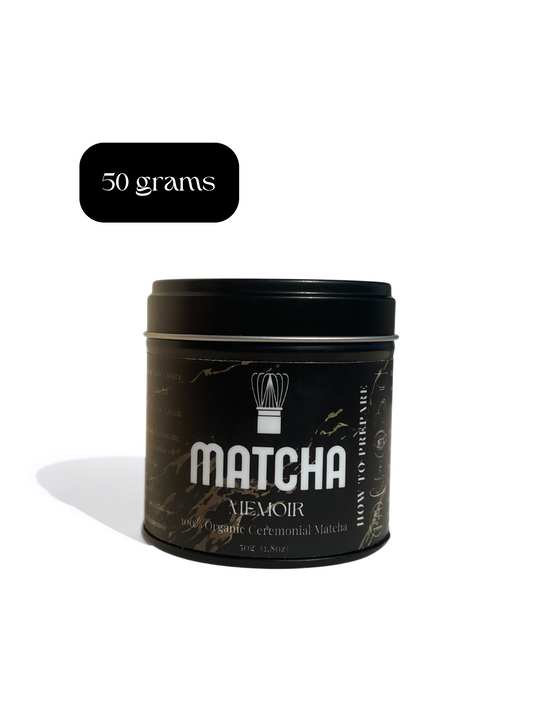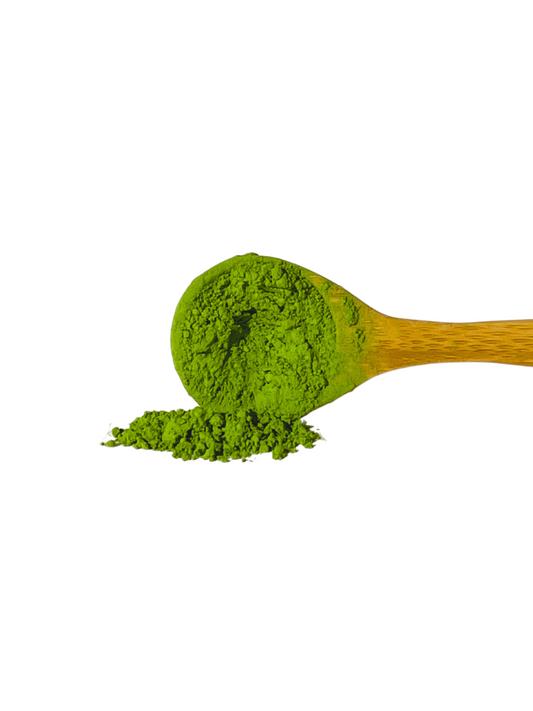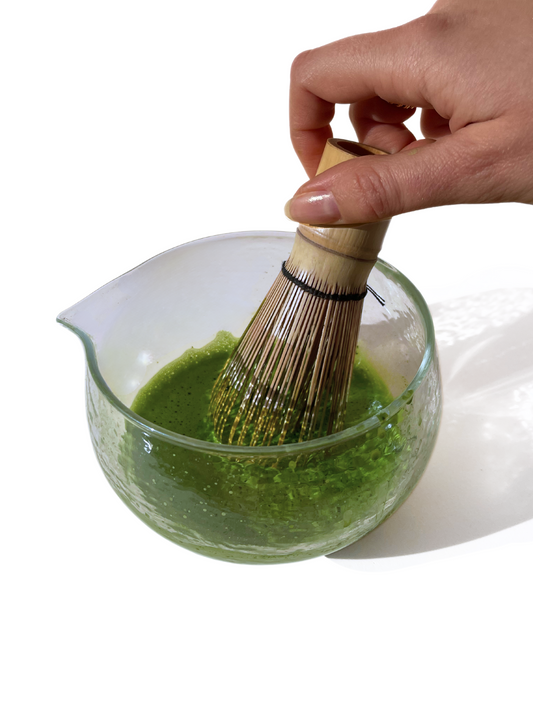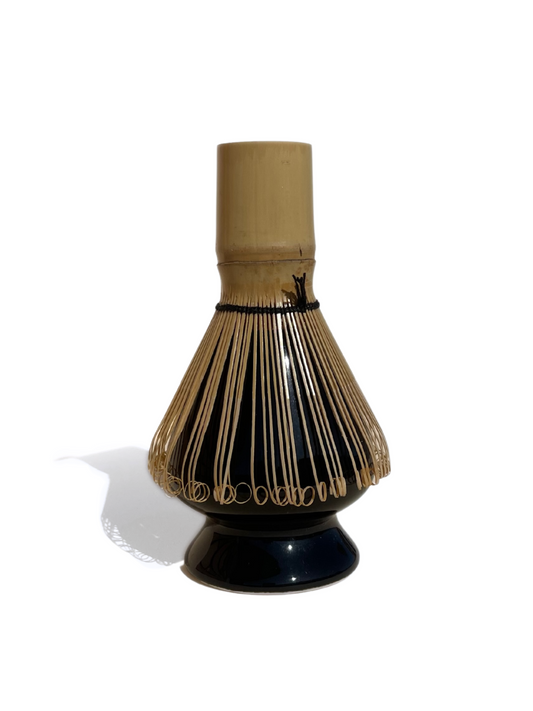Meet Our Best Selling 100% Organic Matcha
The heart of Matcha Memoir—our premium ceremonial matcha. Sustainably sourced and rich in antioxidants, each pack is crafted to elevate your daily rituals, from slow morning moments to energising afternoon pick-me-ups.
-
Organic Ceremonial Matcha
Regular price From €21,95 EURRegular priceUnit price per -
Ceremonial Matcha Refill Pack
Regular price €35,00 EURRegular priceUnit price per



What is Matcha?
Meet matcha, a finely ground ceremonial green tea powder made from shade-grown tea leaves. Unlike regular green tea, matcha powder is whisked into water or milk, allowing you to consume the entire leaf, and all its powerful antioxidants, vitamins, and amino acids.
What's not to love?

Shop All
Café matcha latte who?
you can make them better at home, we believe in you
Step 1
Measure out your perfect matcha amount and don’t forget the MVP of matcha prep... the sieve!
Step 2
Whisk in a W or figure 8 motion until combined and frothy bubbles appear.
Step 3
Choose your style, hot or over ice, and add your milk of choice.
Step 4
Grab your fave glass and soak up the mesmerising moment of watching your vibrant green matcha swirl into the creamy milk.
Matcha questions? We've got you!
Collapsible content

What is matcha?
Matcha is a finely ground powder made from specially grown and processed green tea leaves. Unlike regular green tea, you consume the whole leaf when drinking matcha, which makes it more potent in antioxidants, caffeine, and nutrients.
What does matcha taste like?
High-quality matcha has a smooth, rich, and slightly sweet flavour with a natural umami depth, think earthy but vibrant, creamy without the bitterness. When made well, it shouldn’t taste grassy, harsh, or overly vegetal.
Where is matcha from?
Tea was born in China, and so was the original form of powdered green tea. Japan later refined the ritual and popularised what the world now calls “matcha.”
What are the benefits of drinking matcha?
Matcha is known for its high antioxidant content, gentle caffeine boost, L-theanine (which promotes calm focus), and potential benefits for metabolism, skin health, and mood.
Does matcha have caffeine?
Yes! Matcha contains about 25–35mg of caffeine per gram, roughly one-third of a cup of coffee, but it’s released more slowly thanks to L-theanine, so you get energy without the jitters or crash.
Is matcha good for skin?
Yes! Matcha is packed with antioxidants like EGCG that may help fight inflammation and protect your skin from free radicals.
What’s the difference between ceremonial and culinary matcha?
Ceremonial matcha is made from the youngest, highest-quality leaves and is best for drinking. Culinary matcha is stronger and more bitter, usually used in baking or smoothies.
Is all matcha organic?
Not all matcha out there is organic (sadly, some powders on the market are grown with pesticides or blended with other green teas). At Matcha Memoir, we only source 100% organic ceremonial-grade matcha. That means no pesticides, no chemicals—just pure, shade-grown green tea leaves that are stone-ground into the vibrant powder you know and love.
Why is some matcha bitter?
Bitterness can come from low-quality leaves, improper storage, or incorrect preparation. Matcha Memoir only uses shade-grown, stone-ground ceremonial matcha that’s smooth and delicious.
Is matcha better than coffee?
It depends on what you’re looking for! Matcha offers a smoother, more sustained energy boost without the crash, thanks to its unique combo of caffeine + L-theanine.
Two women. One matcha mission
we wanted better matcha — beautiful, smooth, no fuss. so we made it.












